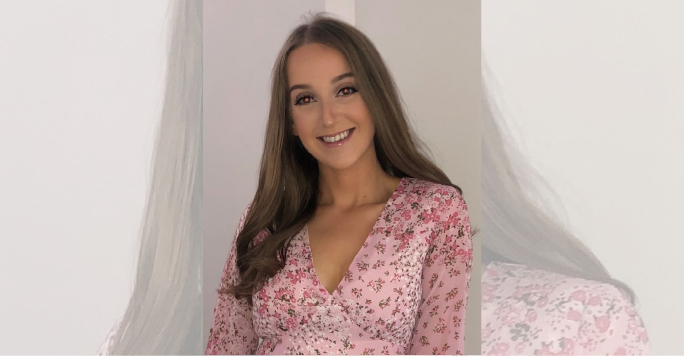From Mathematics with Finance Graduate to Graduate Analyst at The Very Group
Posted on: 4 August 2020 in Graduate stories

Louise studied Mathematics with Finance from the University of Liverpool and graduated in 2019. She is currently working as a Graduate Analyst at The Very Group.
What was your best experience while studying your course at the University of Liverpool and why?
I’ve lived in Liverpool my whole life and I love the city, hence why I decided to stay, but this meant my university experience was slightly different to everyone else’s. I met some really good friends through my course and The Maths Society hosted events throughout the year which was a great way for students like me to meet other people and always ended up being a good night out. Aside from the social aspect, I think my best experience was graduating and seeing everyone’s hard work pay off – it was definitely the proudest moment of my life so far.
While you were at university, what were the beneficial things outside of your course that helped you to get ready to begin your career?
I attended a few sessions at the Careers & Employability service outside of teaching hours that really helped me when it came to decide what type of role I wanted after graduation. The sessions were specifically aimed at maths students and a variety of employers would send a representative to speak about the roles they had available for maths graduates or how having a maths degree helped them in their career. These sessions widened my search in terms of the graduate roles I looked for and introduced me to my current employer.
In which ways did your course help you to prepare for your current role?
Although I don’t use a lot of the actual maths from my degree anymore, the problem solving and logical thinking mindset has really benefited me in my role as a Data Analyst. It’s something I didn’t realise at the time, but the question and answer style used in maths influences the way you approach a problem, always considering the end goal and taking logical steps to get there – this is a crucial part of my job. More recently, I’ve also started learning about experimentation on our website which allows me to witness the theory from my second year statistics modules in real-life situations.
Can you please share an insight into your current role, what do you enjoy the most?
My current role is as a Graduate Analyst at The Very Group finding data-led solutions to business problems. Whenever people ask me to describe my job, I find it quite difficult to say anything other than ‘analyse data’ but in terms of what that entails, it’s using code to extract the data from our databases and using Excel or another tool to manipulate that data. This allows us to analyse the data and provide recommendations back to the business which can be a short-term or long-term process, depending on the problem we’re trying to solve. My favourite part of the job is seeing the impact my work can have on the business.
What challenges did you face as a recent graduate in a new workplace? How did you overcome these?
The biggest challenge I faced as a graduate was putting too much pressure on myself to settle into the business and deliver work like the rest of my team straight away. It can be difficult to go from being a student to working in an office environment, learning about a business you don’t know, meeting a lot of new people and trying to succeed in a job role that you’ve never done. It took me a while to overcome this, but I eventually learned that it’s ok to admit that you don’t know and the best way to find out is to ask as many questions as possible – the chances are nobody expected you to know and they’re happy to help.
Do you have any top tips to share with future and current students? (in terms of preparing for work?)
Work hard and do what’s right for you. I don’t think anyone would tell you a maths degree is easy, but the hard work pays off in the end. Having a STEM degree can open so many doors, just don’t feel too pressured to choose one straight away. Take some time to figure out what interests you and where you could see yourself working, researching employers and job roles. I didn’t have a clue what type of career I wanted until about halfway through third year and I didn’t apply for any jobs until after I’d left university. At the time, I thought I was so behind everyone else, but that’s what worked for me and I wouldn’t be in my current role if I hadn’t taken the time to figure out what I wanted.
Keywords: Case studies, I Got Hired.